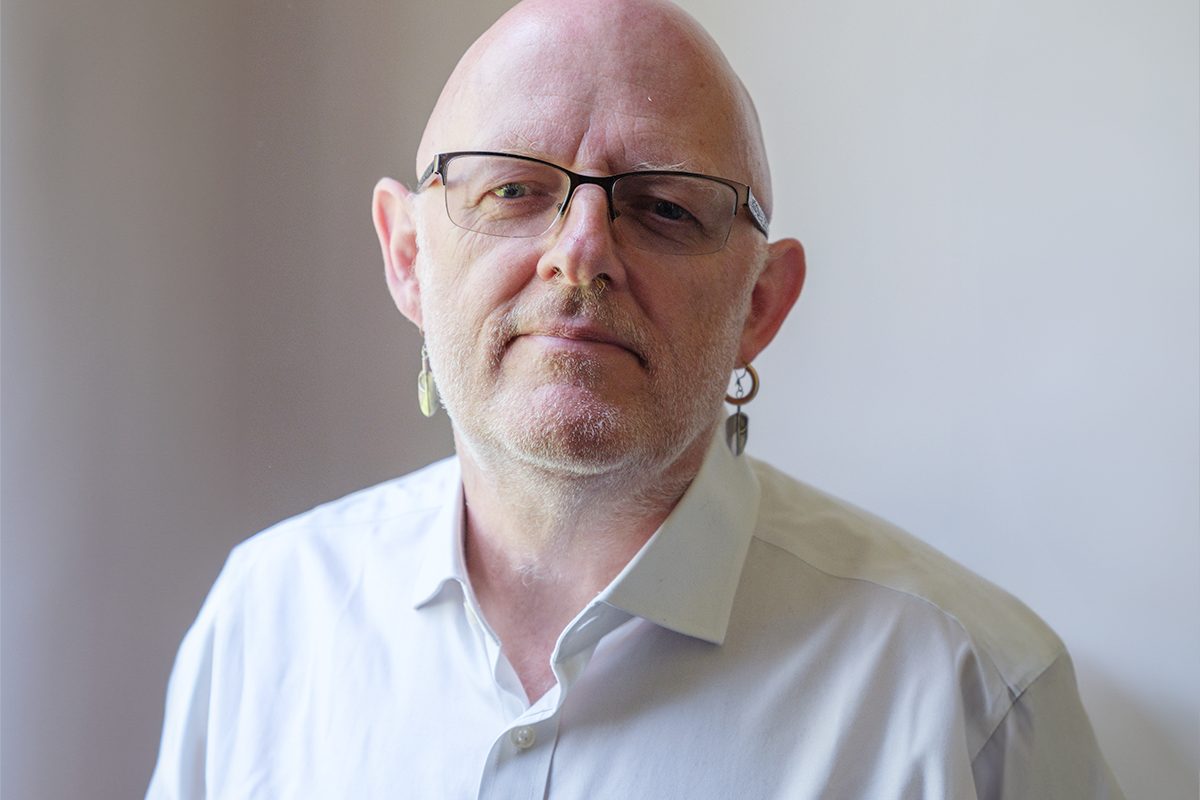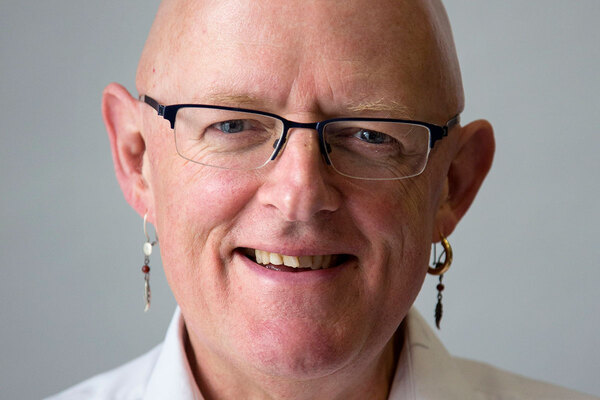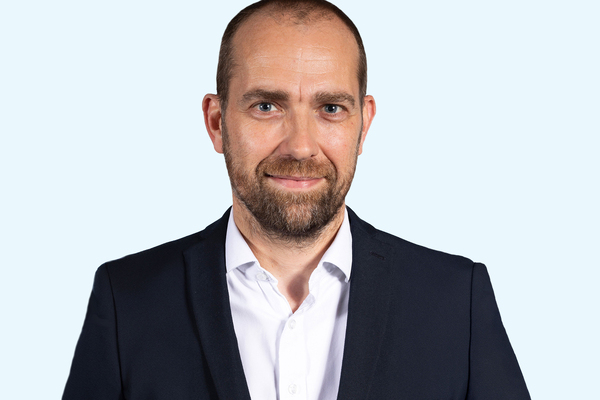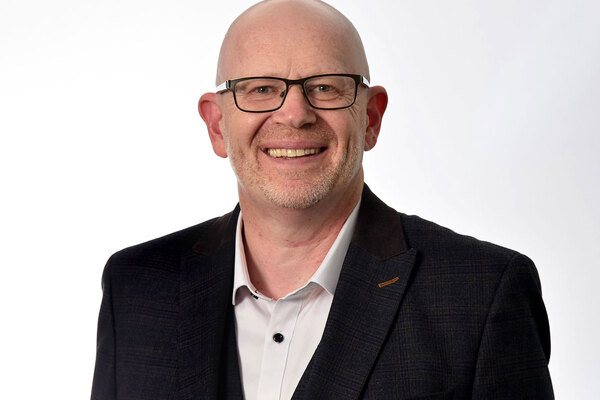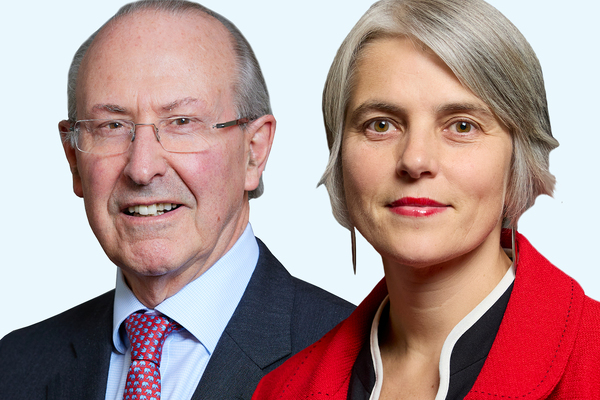Nic Bliss and the campaign to change how landlords see tenants
Stop Social Housing Stigma is a campaign to turn how the social housing sector views tenants on its head. Nic Bliss, a veteran of the co-operative housing movement, tells Peter Apps a massive attitude change is required
“We’ve had this period where the government chose not to regulate housing associations on anything to do with issues to do with tenants,” says Nic Bliss. There is a faint trace of a Brummie accent, a legacy of his 30 years in the city.
“And what did the sector do? It didn’t think, ‘Oh, right, OK, so we’ve now got the freedom to work with our tenants to make things better.’ They just sort of thought…” Here he uses a word I can’t put in a polite housing magazine like this one.
“Do you know what I mean?” he asks.
The honest answer is “yes”, but I ask him to expand.
“It’s just a massive failure of leadership,” he says. “The sector has never really understood why it is important to work with its tenants. With some of the better landlords I’ve worked with, you get a bunch of people in a room – staff and tenants – and you can’t tell who is who. They’re... working together, coming up with great ideas. But in some social landlords, this stigma exists, where there is an immediate belief that these people are not capable of making decisions.”
Mr Bliss has been around the sector for many years, particularly as a previous chair of the Confederation of Co-operative Housing. He has just embarked on a new role, as campaigns director for Stop Social Housing Stigma. This new group is working to push against a view of social housing tenants which many agree has caused an awful lot of damage in this country.
After the Grenfell Tower fire seven years ago this month, a lot of focus was placed on the issue of stigma and its impact.
Theresa May, the prime minister at the time, promised that “long after the TV cameras have gone and the world has moved on”, the “legacy of this awful tragedy” would be policies which would “make [social tenants’] lives better and bring them into the political process”.
There is little to show for this. A pledge to set up a new National Tenant Voice came to nothing. And while stigma was a high-priority concern raised by residents during the government’s showy post-Grenfell ‘roadshow’, not much has been done. In that vacuum, various tenant groups and campaigners formed Stop Social Housing Stigma.
Mr Bliss’ own housing story is interesting. Born in a Norfolk village where – in his words – there was one bus a week, he left home as a young man and came to London in the punk era of the 1970s.
“Even in those days, getting housing in London was next to impossible, so I met these people and they said, ‘Why don’t you squat?’” he says.
“It was a really exciting time. There were about 15 other people living in the house and me and one other guy were the only people from England. So I... felt like suddenly the world is here.”
Back when he had bleached hair with streaks of pink, he hoped his future lay in live music, until a move to Birmingham in the 1980s led him to a housing co-operative. “I’d been living in various privately rented homes and I once had a landlord sledge-hammering the door down,” he says. “A friend of mine who was in the co-op suggested I put my name down and I did.”
Tenant-led campaign
Co-operative housing models – where each resident is a member of the organisation that owns the homes and has a say in the decision-making – remain a fringe part of the market in the UK. They are much more popular overseas. In countries like Switzerland and Canada, there are huge co-ops, with wealthier residents paying more to subsidise those on lower incomes.
But this model means proper tenant ownership, and an organisation which is run by those who live in it.
Mr Bliss contends stigma follows from the failure of the mainstream sector to integrate tenants into decision-making structures. “I’ve worked with many, many housing co-ops and I’ve worked with many housing associations. The difference is chalk and cheese.”
He became involved with Stop Social Housing Stigma when he worked with the group to create a constitution and formally establish itself as a member organisation. Where does he think this stigma comes from?
“That’s a good question,” he says. “I guess it’s linked to the class structure in this country, which still exists. The idea that if you’re a person of worth, you own a home, you don’t go and get social housing – that’s the expectation. So there is a stigma attached to it. And that has an impact on people’s lives: it can marginalise tenants in terms of employment opportunities and all kinds of other areas.”
He also thinks there is a pernicious belief that social housing residents are getting something for free, or should be grateful even for a poor service. Evidence of this attitude was sadly apparent in the build-up to the Grenfell Tower fire, and the tragic death of two-year-old Awaab Ishak. But it is far from isolated in the sector.
“I remember going to a Level Two hearing for a complaint, where I was supporting a tenant, and I can remember a letter from a member of staff at the landlord saying, ‘Why are you complaining, we’ve given you a house, you should be grateful.’” he says. “My jaw dropped, and I was expecting the panel to be shocked as well, but they weren’t – they thought the letter was OK. It’s just unbelievable. And that attitude still exists.”
He is keen to stress that he does not think all social landlords are bad. In fact, he says the issue is more nuanced than simply good or bad organisations.
“It’s never as simple as there’s a good landlord and there’s a bad landlord, because it’s more complex than that. There are good and bad members of staff and they have good or bad days,” he says.
Mr Bliss himself is no longer a tenant, having moved to Leicester with his wife at the start of the COVID-19 lockdown. So he is careful to ensure that it is the tenants who set up the organisation who remain in charge.
“This is a tenant-led campaign. That’s what we need in this sector: people who earn very large salaries in these organisations need to start seeing themselves as servants to tenants.
“There’s got to be a massive attitude change, because there is an arrogance right across the sector. What we have got now has led us to the place we are in now, which is a disaster.”
So what is the campaign planning? Currently they are working with academics at the universities of Sheffield and Durham to develop a toolkit for social landlords to reduce the impact of stigma. Once a draft is complete (probably by the end of the year), they will seek organisations to sign up to pilot it.
The organisation is running on some residual funds from the recently dissolved Tenants’ and Residents’ Organisation of England (TAROE), ceased to operate at the end of last year.
Since May, individuals and organisations have been able to join the group, and it will also open to corporate members, which will be able to become friends by making donations. This will give the group some funding. It will target politicians as well.
“Politicians are going to be far more affected by tenants coming to them than housing association chief executives on six-figure salaries,” he says.
He is positive that this is a moment which might generate change. It is certainly a crunch moment for the sector, amid wide agreement that the past 14 years have not produced good outcomes, and a good deal more focus from the regulator, politicians and boards on providing a better standard of service.
“Potentially, this is a time where things could change. And that could lead to much more tenant primacy than has previously been the case. I hope it becomes a real moment where we can make a difference,” he says.
Stop Social Housing Stigma will hope to be at the heart of that.
Nic Bliss will be speaking at the ‘Crunch point: learning from the past to fix a broken system’ session at Housing 2024, 25 June, 2pm. Book your delegate pass at housingevent.com
Recent longform articles by Peter Apps
Cladding remediation: why is progress so slow?
It has been nearly seven years since the Grenfell fire, yet thousands of buildings are still in need of cladding remediation. Peter Apps investigates why the process has been moving at such a glacial pace
How a ‘Google Maps of heat loss’ might make retrofit easier to plan
Technology is opening up new ways to quickly assess which homes are leaking heat, making them a priority to retrofit. Peter Apps reports
What it is like to live in Nine Elms as an affordable housing resident
While the wealthy private owners of flats in Nine Elms enjoy the use of the swimming pool and orangery, affordable housing tenants are struggling to get repairs done. Peter Apps reports
The water will come: how should the social housing sector prepare for a wetter world?
Peter Apps looks at how social landlords should prepare themselves to respond to flood emergencies, which are set to become more frequent as the climate changes
The office-to-residential conversions which have become slum housing
Poorly converted office blocks are putting people in temporary accommodation at risk of serious harm. Peter Apps reports
Sign up for our daily newsletter
Already have an account? Click here to manage your newsletters
